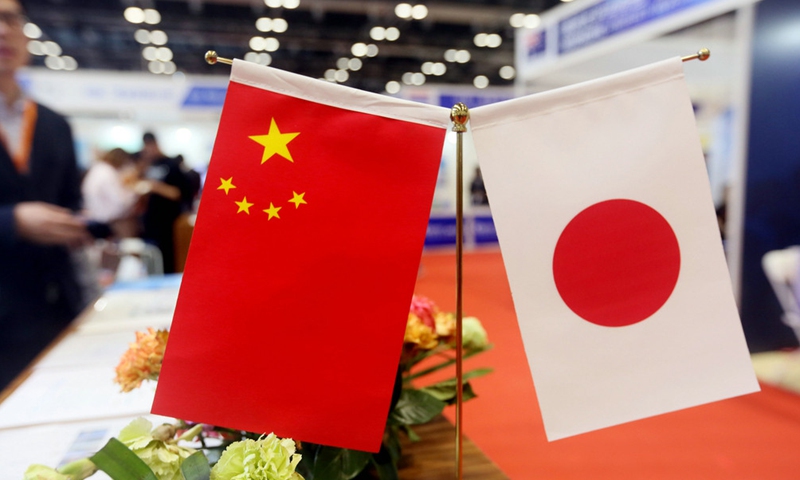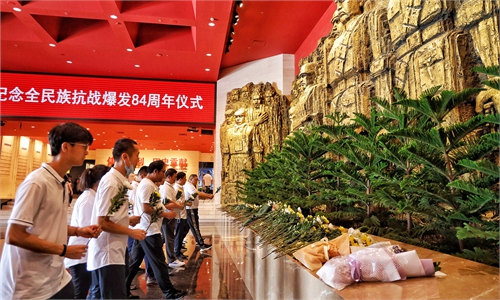COMMENTS / EXPERT ASSESSMENT
Japan's recent scheme toward economic and trade issues with China

Photo: IC
The Japanese ambassador to Australia Shingo Yamagami recently said that Japan "struggles every day" when it comes to its relations with China, according to media reports.
In fact, besides political and security issues, Japan has engaged in a set of economic and trade moves with China while focusing on "institutional counterweight" approaches.
Through forming institutional frameworks or teaming up with the US and Europe, Japan has been attempting to lead institutional campaigns to counterbalance China. The purpose is to build up institutional advantages in economic and trade cooperation or compete with China to obtain benefits.
Under the banner of economy plus security, Japan consolidates its interest by echoing the US' confrontation with China, while on the other hand, it enhances cooperation with the US and EU in 14 cutting-edge technology areas, such as information and communication, bio-engineering, IT equipment and quantum computers, in order to build an alleged "new economic and trade order" led by them.
For starters, Japan has actively cooperated with the US, the EU and other countries to set up high-tech export restrictions and is trying to build a new supply chain of strategic materials under the "Indo-Pacific" framework. It has planned laws to monitor technology transfer, high-tech investment and new market development of Japanese enterprises in China and agreed with the US to jointly develop 6G networks. Tokyo has been actively matching up Washington's anti-China advances after the US President Joe Biden took over office and started confronting China.
In terms of strengthening infrastructure cooperation in third countries, Japan and the US have focused on improving next-generation infrastructure, such as power generation equipment which will help achieve the carbon reduction goals and the 5G network. They are aiming to take the driving seat in the supply of infrastructure construction in the Indo-Pacific region.
Japan also plays an active part initiating the Blue Dot Network together with the US and Australia in an institutional counterweight against the China-proposed Belt and Road Initiative. By rolling out the Blue Dot Network in 2019, they aimed to completely disrupt the global infrastructure landscape and create alleged international certification standards for large-scale infrastructure projects, similar to the Michelin ratings for restaurants.
In addition, Japan tries to play a leading role in establishing high-quality trade rules by relying on the Comprehensive and Progressive Trans-Pacific Partnership (CPTPP), the Japan-EU Economic Partnership Agreement and the Japan-UK Comprehensive Economic Partnership Agreement.
These moves by Japan essentially show that their perception of China has not been properly straightened out. Many still do not have a clear idea of whether China is an opportunity or a challenge, a partner or an adversary.
China and Japan have been entangled in historical struggles and geographical conflicts. On one hand, it makes the relationship between the two countries complicated and sensitive. On the other, Japan may feel the impact of China's rise more directly and strongly than the US and European countries and the structural security dilemma of the two countries may persist for a long time.
The article was compiled based on a commentary written by Cai Liang, a research fellow of the Shanghai Institute for International Studies. bizopinion@globaltimes.com.cn


